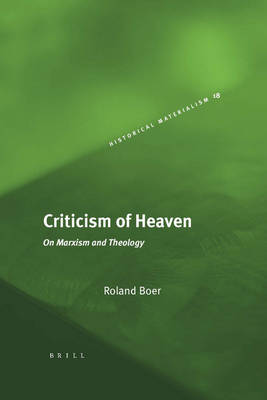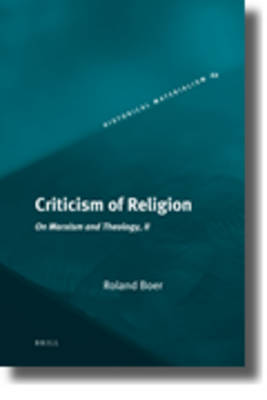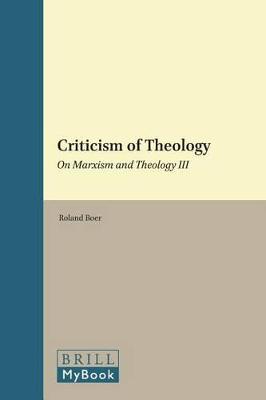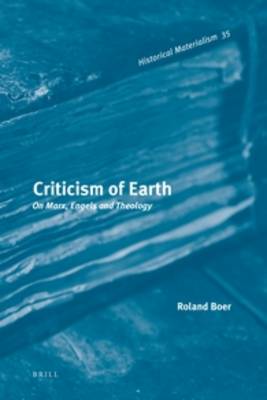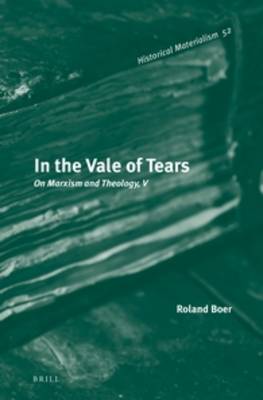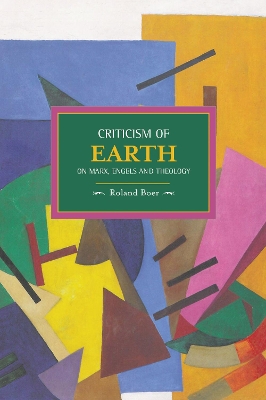Historical Materialism Book
5 primary works • 6 total works
Book 18
This volume consists of a critical commentary on the interactions between Marxism and theology in the work of the major figures of Western Marxism. It deals with the theological writings of Ernst Bloch, Walter Benjamin, Louis Althusser, Henri Lefebvre, Antonio Gramsci, Terry Eagleton, Slavoj Žižek and Theodor Adorno. In many cases their theological writings are dealt with for the first time in this book. It is surprising how much theological material there is and how little commentators have dealt with it. Apart from the critical engagement with the way they use theology, the book also explores how their theological writings infiltrate and enrich their Marxist work. The book has three parts: Biblical Marxists (Bloch and Benjamin), Catholic Marxists (Althusser, Lefebvre, Gramsci and Eagleton), and the Protestant Turn (Žižek and Adorno).
Book 22
Criticism of Religion offers a spirited critical commentary on the engagements with religion and theology by a range of leading Marxist philosophers and critics: Lucien Goldmann, Fredric Jameson, Rosa Luxemburg, Karl Kautsky, Julia Kristeva, Alain Badiou, Giorgio Agamben, Georg Lukacs, and Raymond Williams. Apart from offering sustained critique, the aim is to gather key insights from these critics in order to develop a comprehensive theory of religion. The book follows on the heels of the acclaimed Criticism of Heaven, being the second volume of a five volume series called Criticism of Heaven and Earth.
Book 27
Criticism of Theology provides a detailed and critical commentary on the continued fascination with religion by yet more significant Marxist philosophers, historians and critics: Max Horkheimer, E.P. Thompson, G.E.M. de Ste. Croix, Michael Loewy, Roland Barthes, Gilles Deleuze, Felix Guattari and Antonio Negri. Simultaneously critique and construction, Criticism of Theology carefully analyses their work through close textual readings, with a view to locating hidden gems that may be developed further. The book continues the project for a renewed and enlivened interaction between Marxism and religion, being the third of five volumes in the Criticism of Heaven and Earth series.
Book 35
Criticism of Earth thoroughly reassesses Marx and Engels's engagement with theology, drawing on largely ignored texts. Thus, alongside 'opium of the people', Hegel's philosophy of law, and the Feuerbach theses, other works are also central. These include Marx's early pieces on theology, continual transformations of fetishism, and lengthy treatments of Bruno Bauer and Max Stirner. Engels too is given serious attention, since he moved beyond Marx in appreciating theology's revolutionary possibilities. Engels's Calvinism is discussed, his treatments of biblical criticism and theology, and his later writings on early Christianity's revolutionary nature. The book continues the project for a renewed and enlivened interaction between Marxism and religion, being the fourth of five volumes in the Criticism of Heaven and Earth series.
Book 52
Winner of the 2014 Isaac and Tamara Deutscher Memorial Prize.
In the Vale of Tears brings to a culmination the project for a renewed and enlivened debate over the interaction between Marxism and religion. It does so by offering the author's own response to that tradition. It simultaneously draws upon the rich insights of a significant number of Western Marxists and strikes out on its own. Thus, it argues for the crucial role of political myth on the Left; explores the political ambivalence at the heart of Christianity; challenges the bent among many on the Left to favour the unexpected rupture of kairos as a key to revolution; is highly suspicious of the ideological and class alignments of ethics; offers a thorough reassessment of the role of fetishism in the Marxist tradition; and broaches the question of death, unavoidable for any Marxist engagement with religion. While the book is the conclusion to the five-volume series, The Criticism of Heaven and Earth, it also stands alone as a distinct intervention in some burning issues of our time.
In the Vale of Tears brings to a culmination the project for a renewed and enlivened debate over the interaction between Marxism and religion. It does so by offering the author's own response to that tradition. It simultaneously draws upon the rich insights of a significant number of Western Marxists and strikes out on its own. Thus, it argues for the crucial role of political myth on the Left; explores the political ambivalence at the heart of Christianity; challenges the bent among many on the Left to favour the unexpected rupture of kairos as a key to revolution; is highly suspicious of the ideological and class alignments of ethics; offers a thorough reassessment of the role of fetishism in the Marxist tradition; and broaches the question of death, unavoidable for any Marxist engagement with religion. While the book is the conclusion to the five-volume series, The Criticism of Heaven and Earth, it also stands alone as a distinct intervention in some burning issues of our time.
Criticism of Earth thoroughly reassesses Marx and Engels's engagement with theology, analyzing their collected works for discussions of spiritual matters and the persistence of biblical allusions. What emerges is a continued interest that is maintained throughout their lives, from Marx's Critique of Hegel's Philosophy of Right, until the very end with Engels's treatise on the revolutionary origins of early christianity.
